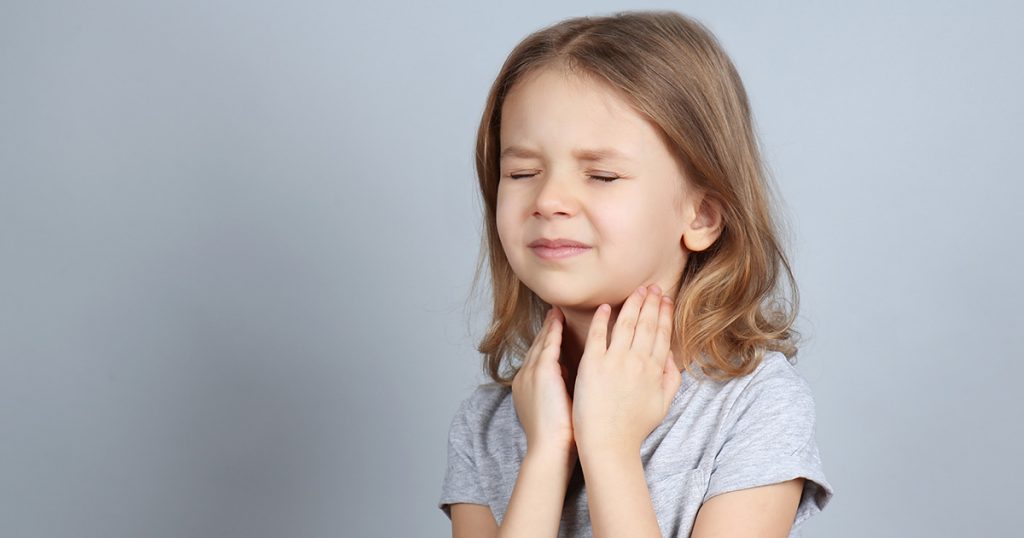Coronavirus (Covid) in infants and kids
Offspring, everything being equal, can turn out to be sick with Covid infection (covid symptoms in kids). However, most children who are contaminated regularly don’t become as wiped out as grown-ups and some probably won’t show any side effects whatsoever. Know the signs and side effects of COVID-19 in infants and kids, why kids may be impacted diversely by COVID-19 and what you can do to forestall the spread of the infection.
How probably is it for a kid to become wiped out with Covid illness 2019 (COVID-19)?
As indicated by the American Academy of Pediatrics and the Children’s Hospital Association, in the U.S. youngsters address around 16% of all COVID-19 cases. Coronavirus in kids has been on the ascent in the U.S., with youngsters as of late making up 24% of a little more than 100,000 week by week detailed instances of COVID-19.
While all youngsters are equipped for getting the infection that causes COVID-19, they don’t become wiped out as regularly as grown-ups. Most kids have gentle side effects or no manifestations.
Notwithstanding, a few youngsters become seriously sick with COVID-19. They may should be hospitalized, treated in the emergency unit set on a ventilator to assist them with breathing, as indicated by the Centers for Disease Control and Prevention (CDC).
Also, youngsters with other medical issue, like corpulence, diabetes and asthma, may be at higher danger of genuine disease with COVID-19. Kids who have inborn coronary illness, hereditary conditions or conditions influencing the sensory system or digestion likewise may be at higher danger of genuine disease with COVID-19.
Exploration additionally proposes lopsidedly higher paces of COVID-19 in Hispanic and non-Hispanic Black youngsters than in non-Hispanic white kids.
A few kids keep on encountering side effects of COVID-19 after their underlying recuperation. Seldom, a few kids may likewise foster a genuine condition that seems, by all accounts, to be connected to COVID-19.
For what reason do kids respond any other way to COVID-19?
The appropriate response isn’t clear yet. A few specialists recommend that youngsters probably won’t be as seriously impacted by COVID-19 in light of the fact that there are other Covids that spread locally and cause sicknesses like the normal virus. Since kids frequently get colds, their safe frameworks may be prepared to furnish them with some security against COVID-19. It’s additionally conceivable that youngsters’ invulnerable frameworks collaborate with the infection uniquely in contrast to do grown-ups’ insusceptible frameworks. A few grown-ups are becoming ill on the grounds that their resistant frameworks appear to overcompensate to the infection, making more harm their bodies. This might be more averse to occur in youngsters.
How are infants impacted by COVID-19?
Infants under age 1 may be at higher danger of extreme sickness with COVID-19 than more seasoned kids. This is probable because of their youthful insusceptible frameworks and more modest aviation routes, which make them bound to foster breathing issues with respiratory infection contaminations.
Babies can become tainted with the infection that causes COVID-19 during labor or by openness to wiped out parental figures after conveyance. In case you have COVID-19 or are sitting tight for test results because of indications, it’s suggested during hospitalization after labor that you wear a material facial covering and have clean hands when really focusing on your infant. Keeping your infant’s bunk by your bed while you are in the emergency clinic is OK, but on the other hand it’s suggested that you avoid your child whenever the situation allows. At the point when these means are taken, the danger of an infant becoming contaminated with the COVID-19 infection is low. In any case, on the off chance that you are seriously sick with COVID-19, you may should be briefly isolated from your infant.
Babies who have COVID-19 or who can’t be tried and have no indications may be released from the clinic, contingent upon the conditions. It’s suggested that the child’s parental figures wear facial coverings and clean up to ensure themselves. Successive development with the child’s medical services supplier is required — by telephone, virtual visits or in-office visits — for 14 days. Babies who test negative for COVID-19 can be sent home from the medical clinic.
What COVID-19 immunizations have been supported for youngsters?
In the U.S., COVID-19 immunizations are accessible to youngsters by age bunch:
Ages 5 through 11. The U.S. Food and Drug Administration (FDA) has given crisis use approval to a Pfizer-BioNTech COVID-19 immunization for this age bunch. This antibody includes two infusions, given three weeks separated. It contains a lower portion than the Pfizer-BioNTech COVID-19 antibody utilized for individuals age 12 and more seasoned. Examination shows that this immunization is around 91% powerful in forestalling COVID-19 in youngsters ages 5 through 11.
Ages 12 through 15. The FDA has given crisis use approval to a Pfizer-BioNTech COVID-19 antibody for this age bunch. This immunization includes two infusions, given three weeks separated. It contains a similar portion as the Pfizer-BioNTech COVID-19 immunization for individuals ages 16 and more established. The subsequent portion can be surrendered to about a month and a half after the main portion, if necessary. Examination has shown that this immunization is 100% viable in forestalling COVID-19 in kids ages 12 through 15.
Ages 16 and more established. The FDA has endorsed a Pfizer-BioNTech COVID-19 antibody, presently called Comirnaty, for this age bunch. This immunization includes two infusions, given three weeks separated. The subsequent portion can be surrendered to about a month and a half after the main portion, if necessary. This immunization is 91% powerful in forestalling extreme sickness with COVID-19 in individuals age 16 and more seasoned.
Studies on the utilization of COVID-19 immunizations in more youthful youngsters are additionally in progress.
Kids’ COVID-19 indications
While youngsters and grown-ups experience comparative side effects of COVID-19, kids’ indications will quite often be gentle and cold-like. Most kids recuperate inside one to about fourteen days.
Potential indications can include:
- Fever
- Hack that becomes useful
- New loss of taste or smell
- Changes in the skin, like stained regions on the feet and hands
- Sore throat
- Gastrointestinal manifestations, like sickness, spewing, paunch torment or looseness of the bowels
- Chills
- Muscle hurts and agony
- Outrageous exhaustion
- New serious migraine
- New nasal blockage
On the off chance that your youngster has manifestations of COVID-19 and you figure the individual in question may have COVID-19, call your kid’s PCP. Keep your kid at home and away from others however much as could be expected, but to get clinical consideration. If conceivable, have your youngster utilize a different room and restroom from relatives. Follow suggestions from the World Health Organization (WHO) and your administration viewing quarantine and seclusion measures as fitting.
Assuming your kid has COVID-19 and can be treated at home, center around easing their side effects. This may incorporate rest, liquid admission and pain killers.
Variables used to choose whether to test your youngster for COVID-19 might contrast contingent upon where you reside. In the U.S., the specialist will decide if to direct symptomatic tests for COVID-19 dependent on your youngster’s signs and indications, just as regardless of whether your kid has had close contact with somebody determined to have COVID-19. The specialist may likewise think about testing in the event that your youngster is at higher danger of genuine disease.
To test for COVID-19, a medical services supplier utilizes a long swab to take an example from the rear of the nose (nasopharyngeal swab). The example is then shipped off a lab for testing. In case your youngster is hacking up mucus (sputum), that might be sent for testing.
What is multisystem incendiary disorder in youngsters (MIS-C)?
Multisystem incendiary disorder in kids (MIS-C) is a genuine condition wherein a few pieces of the body — like the heart, lungs, veins, kidneys, stomach related framework, cerebrum, skin or eyes — become seriously aggravated. Proof demonstrates that a significant number of these kids were tainted with the COVID-19 infection previously, as shown by certain neutralizer test results, recommending that MIS-C is brought about by an inordinate safe reaction identified with COVID-19.
Potential signs and indications of MIS-C include:
- Fever that keeps going 24 hours or longer
- Regurgitating
- Loose bowels
- Agony in the stomach
- Skin rash
- Quick heartbeat
- Quick relaxing
- Red eyes
- Redness or expanding of the lips and tongue
- Feeling abnormally drained
- Redness or expanding of the hands or feet
- Cerebral pain, tipsiness or dizziness
- Extended lymph hubs
- Crisis cautioning indications of MIS-C include:
- Failure to awaken or remain alert
- Trouble relaxing
- New disarray
- Pale, dark or blue-shaded skin, lips or nail beds — relying upon complexion
- Serious stomach torment
In the event that your kid gives any crisis cautioning indications or is seriously wiped out with different signs and manifestations, take your youngster to the closest crisis office or call 911 or your nearby crisis number. In case your youngster isn’t seriously sick yet gives different indications or side effects of MIS-C, contact your kid’s primary care physician immediately for guidance.
Could kids who get COVID-19 experience long haul impacts?
Any individual who has had COVID-19 can foster a post-COVID-19 condition. Exploration recommends that kids with both gentle and extreme COVID-19 have encountered long haul indications.
The most well-known side effects in kids include:
- Sluggishness or exhaustion
- Migraine
- Inconvenience resting
- Inconvenience concentrating
- Muscle and joint torment
- Hack
These side effects could influence your youngster’s capacity to go to class or do their standard exercises. On the off chance that your kid is encountering long haul manifestations, consider conversing with your youngster’s educators about their requirements.
Assuming youngsters don’t every now and again experience extreme ailment with COVID-19, for what reason do they require a COVID-19 antibody?
A COVID-19 antibody can keep your kid from getting and spreading the infection that causes COVID-19.
On the off chance that your youngster gets COVID-19, a COVID-19 immunization could keep the person in question from turning out to be seriously sick or encountering present moment or long haul entanglements. Kids with other medical issue, like weight, diabetes and asthma, may be at higher danger of genuine sickness with COVID-19.
Getting a COVID-19 antibody can likewise assist with keeping your youngster in school and all the more securely have playdates and take part in s.

